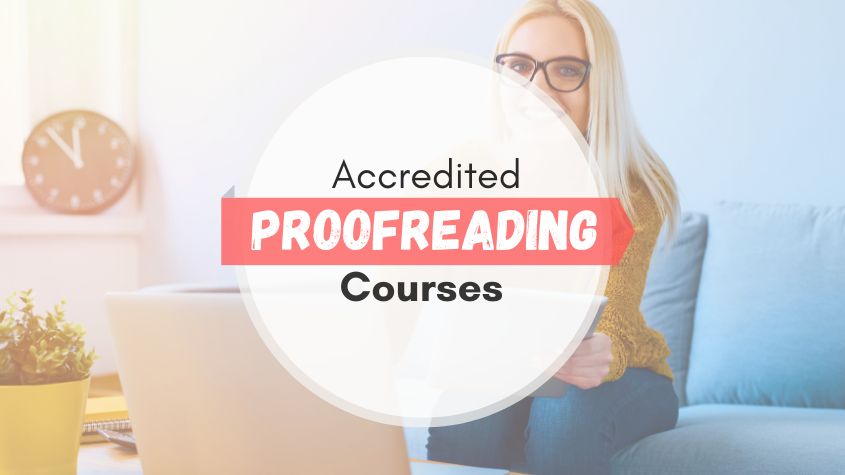How I Started My Proofreading Business
When I lost my job during COVID, I felt completely stuck. I needed to find a way to make money online, but I had no idea where to start. I didn’t have a business background, and I wasn’t a tech expert. I was just someone who had always been good with words and being organized. I found about about working online and the huge range of work you can do! So firstly I am going to share how to start your proofreading business.
Before this, I worked as a teacher, which meant I already had a sharp eye for proofreading and editing. I spent years writing reports, planning activities, and creating content for students and parents. Plus, I loved reading. But at the time, I never thought of those as marketable skills until I started searching for online work and kept coming across proofreading.

My First Online Job as a Content Writer
At first, I wasn’t sure if people really made money doing this. Was it legit? Could I actually turn my skills into income? But before I even had the chance to dive in, an opportunity landed in my lap.
A friend of mine was building websites and needed a content writer. He knew I had strong writing skills and asked if I wanted to give it a shot. I said yes—and I loved it!! As I worked on content writing, I quickly realized that proofreading was a huge part of my process. Before submitting my work, I meticulously checked for errors, clarity, and flow.
Without even realizing it, I was already honing my proofreading skills and developing an eye for detail that would later become the foundation of my business. That was my first real experience working online, and it opened my eyes to the fact that there were so many ways to use my skills to make money from home.
Turning a Side Gig into a Real Business
That’s when I started to explore proofreading as a serious option. The more I researched, the more I realized this was something I could do. So I took the leap.
My first step? I signed up for a proofreading course to sharpen my skills and learn how to find clients. Before I knew it, I was landing small gigs, gaining confidence, and realizing that this could be more than just a quick fix—it could be a real business. I just knew I loved working with words, had a keen eye for detail, and wanted to create a flexible online business that could grow into something bigger. If you feel the same way, you’re in the right place!
Building a successful proofreading business is more than just having good grammar skills—it’s about finding clients, managing your workload, and deciding whether this will be a side hustle or a full-time career. This guide will walk you through exactly how to start your own proofreading business, even if you have no experience. Let’s go!

Start Your Proofreading Business
Step 1: Learn the Basics of Proofreading
Before you start offering business proofreading services, you need to develop your skills. Proofreading is more than just catching typos; it involves checking for clarity, consistency, and formatting issues. Here’s how to get started:
- Take a Proofread Anywhere course to learn the professional techniques used in the industry.
- Practice by proofreading blogs, articles, or social media posts to refine your skills.
- Familiarize yourself with style guides like Chicago Manual of Style and AP Stylebook.
Step 2: Set Up Your Proofreading Business
Once you feel confident in your skills, it’s time to treat this as a business. Here’s what you need:
- Create a Business Plan – Define your niche, pricing, and target clients.
- Choose a Business Name & Website (optional but a must as you get bigger) – A professional online presence builds trust.
- Set Up Business Tools – Use tools like Trello for workflow management and Grammarly for editing assistance.
Step 3: Finding Clients for Your Proofreading Business
Finding clients is one of the biggest hurdles when you start your own proofreading business. Here are some of the best ways to land your first clients:
- Networking – Tell your friends, family, and LinkedIn connections about your new service.
- Freelance Marketplaces – Sign up on Fiverr, Upwork, and PeoplePerHour.
- Content Writers & Bloggers – Reach out to bloggers and content creators who need proofreading help.
- Online Business Owners – Many entrepreneurs need polished content for their websites and courses.

Step 4: Planning & Scheduling Work
Managing your time is crucial as a self-employed proofreader. Here are some tips:
- Use tools like Google Calendar or Trello to schedule deadlines.
- Start small by taking on projects after work hours if you have a full-time job.
- Be realistic with your workload and avoid overcommitting.
Step 5: Developing the Right Mindset for Self-Employment
Working for yourself requires a shift in mindset. You must:
- Be disciplined and hold yourself accountable.
- Stay motivated even when client work slows down.
- Learn to market yourself confidently without hesitation.
Step 6: Expanding Your Services Beyond Proofreading
If you want to grow your income, consider offering additional services:
- Virtual Assistance (VA) Work – Many proofreaders transition into VA roles, handling emails, scheduling, and more.
- Editing Services – Move beyond basic proofreading to full copy editing.
- Content Writing – Some proofreaders naturally shift into content creation.
To get started in VA work, check out Fully Booked VA Courses, which teach you how to land high-paying clients.
Step 7: Decide if You Want a Side Hustle or Full-Time Career
- If you love your full-time job, keep proofreading as a side hustle.
- If you want to scale up, start planning your transition to full-time work.
- Track your income and workload to determine when it’s safe to take the leap.

Is a Proofreading Business the Right Path for You?
If you have an eye for detail, love working with words, and want the flexibility of self-employment, then starting your own proofreading business is a fantastic opportunity! Whether you’re looking for a side hustle or planning to go full-time, following these steps will set you on the right path. Remember this isn’t instant it takes time and patience. Build your skills and your experience so you feel confident in servicing your clients.
Like Elizabeth always says! I believe in you! Haha we believe in you!!!
Ali












